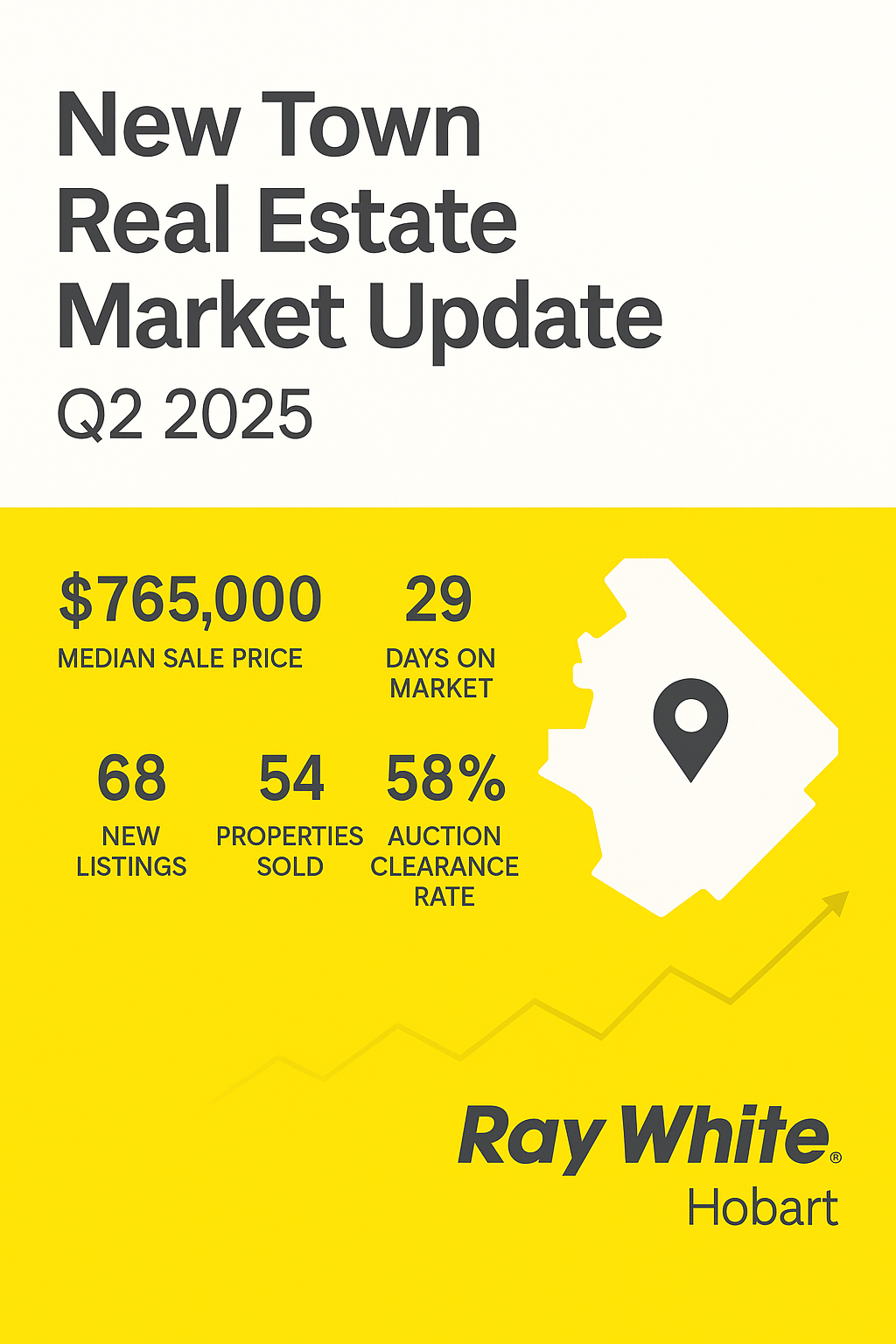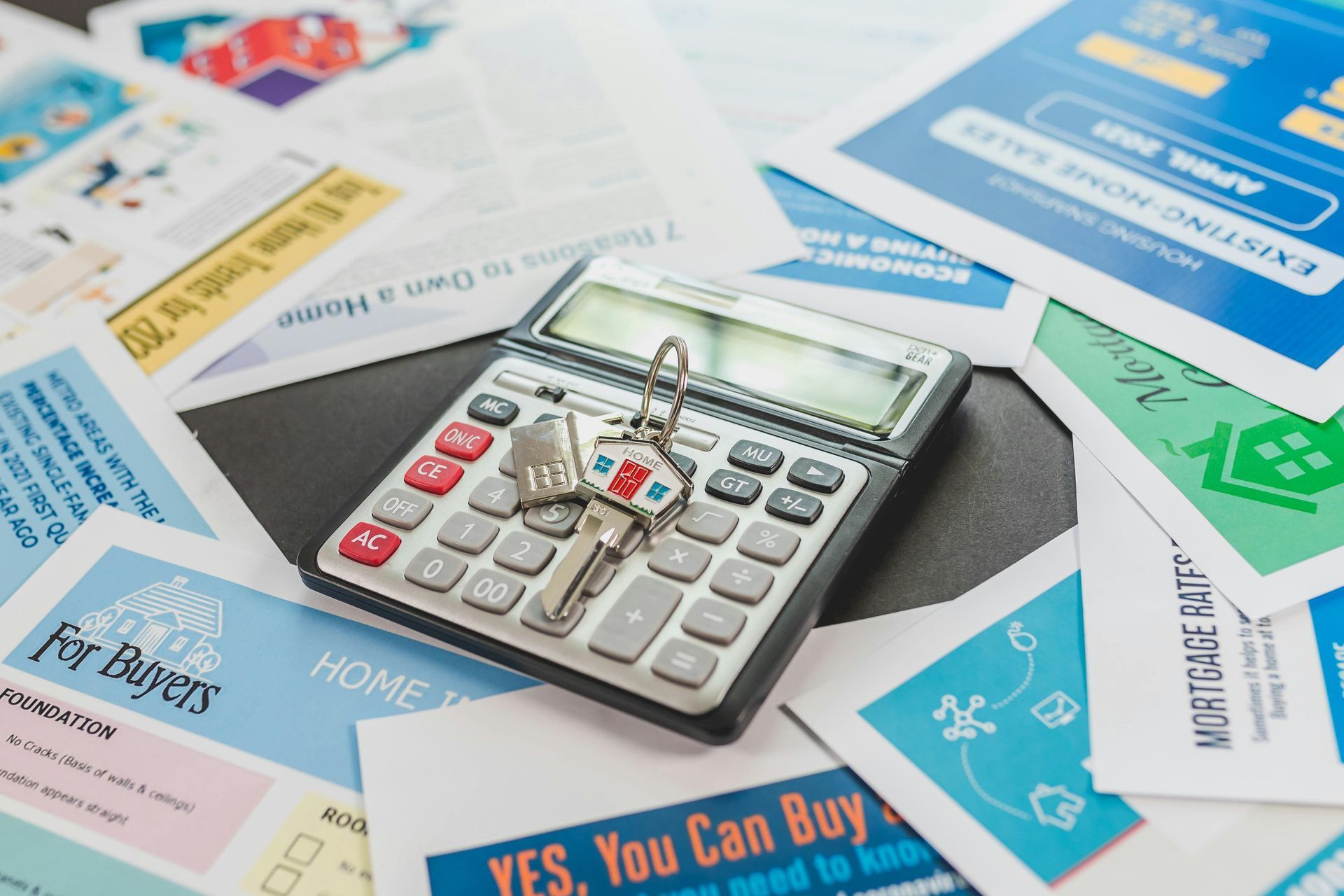Buying/Selling in Tasmania Important FAQ'S
Learn About Some More of the Important Questions When it Comes to Buying and Selling.
What is a sole agency or exclusive property agreement?
The agreement is for a real estate agent, chosen by the consumer, to have exclusive rights to sell their property for an agreed period of time. During this period of time, even if the home is sold privately, the agent is entitled to a commission. Any vendor that signs another agency agreement with a different real estate agent could make the vendor liable for two commissions if the property is sold and the contract, period overlap at anytime.
What is conjunction?
This refers to a situation where one real estate agency might have a sole agency agreement on a property and a competing real estate agent finds a willing buyer for the property and by mutual agreement, the two agents may share the commission payable on the property (i.e. no additional cost to the vendor). However, a competing real estate agent must not encourage a vendor to terminate an existing contract with a competitor and must not sign the vendor up to another agreement without advising that the vendor could now be up for two commissions as there may now be two legally binding contracts in operation at the same time.
Making an offer - how does it work?
When an offer is made for the purchase of a property it should be a made on a formal contract document (whether it is via a real estate agent or a private sale). A verbal offer is not legally binding and should not be relied upon by either party. When the offer is put to the property owner (vendor) they can either sign and agree to the price, or amend the price and return it to the buyer for further consideration. This may go back and forth until both parties are happy to finalise a sale.
What about offers that are 'subject to finance'?
A contract offer can be subject to various clauses. The most common of those is that the sale is subject to the sale of the buyer’s existing property within a prescribed timeframe, or is subject to the buyer being granted the necessary finance to purchase. If the buyer’s offer is subject to the sale of another property (e.g. their own home), the offer may be terminated if their property is not sold within an agreed timeframe. The purchaser must have made a genuine attempt to seek finance and the vendor would then be free to secure an alternative buyer.
What does going unconditional mean?
This is a legal term that relates to a contract for sale offer by a buyer that becomes legally binding. For example the sale of the buyer’s property has been sold and the buyer has secured finance – and the only remaining requirement is to wait for settlement date. At this point there is no turning back and the sale is binding on both parties.
What is referred to as a settlement date?
Settlement date is when contracts and keys of the property are exchanged by the solicitors representing the buyer and seller. The purchase price is transferred from one party to another. The onus is on the property owner to have vacated the property completely and this will allow the owner to take possession (e.g. move in if they wish).
What deposit is required?
The deposit payable at the time a sale of contract has been agreed upon traditionally involves a deposit of around 10% of the purchase price as a sign of good faith. This is retained in a trust account by the real estate agent until the property is settled. However, the actual amount of deposit is a matter of negotiation by both parties.
What is the offer and acceptance process?
The seller of a property (vendor) wants the best possible price, while the buyer wants to pay the least amount possible. Accordingly, the sale price can be the subject on many offers over a long period of time and some vendors will be prepared to wait for as long as necessary to get the best price, while some will be more inclined to make a quick decision. A buyer making an offer should never assume that the agent or the property owner will come back and forth to them – and buyers should take the approach that their first offer may be the only opportunity they get to obtain the property. A willing seller may not wish to wait around and may accept a reasonable offer from another buyer. The fact that a different buyer may indicate after the property is sold, that they were prepared to pay more for the property, is problematical. At the end of the day, a seller can sell their property to whoever they like, when they like and the agent merely acts on their behalf.
The role of the real estate agent?
The real estate agent acts on behalf of the seller (vendor) of the property as ultimately they pay for their services. He/she is tasked with marketing the property and liaising with the property owner (vendor) on the likely market price of the property based on property sales in the area over recent times. The agent will discuss the property with interested parties; show potential buyers through the property at agreed times and are the central figure in the offer and acceptance price, until both parties are happy to proceed with a sale.
What is price bracketing?
Price bracketing refers to a marketing tool whereby a property may be advertising with a suggestion that buyers should consider offers in the $200-220,000 range. Legislation dictates that if an offer is then made for $200,000 and the offer is NOT accepted by the vendor, advertising for the property must then reflect that by saying $205 – 220,000, otherwise the advertising would be misleading in that an offer of $200,000 is regarded as ‘bait advertising’ and only been used to lure them into negotiation for a price that has already been dismissed by the owner.
What is bait advertising?
Bait advertising refers to an illegal marketing ploy whereby a property is advertised for a price that is lower than what a vendor will ever agree to sell it for. The action is simply used to entice multiple buyers to step forward and show interest in a given property with the hope that each will then bid for the property and ultimately seek the optimum sale price for the vendor. To bait such buyers is to give them false hope that they may be able to buy a property for a bargain price, when in reality this is highly unlikely.
What is misleading advertising?
Misleading advertising is to exaggerate or describe a property that is either inaccurate or misleading. This activity is illegal and court proceedings against an agent and/or property owner may result if a case is proven. The misleading advertising could refer to the actual size of the home, the size of the land, its proximity to the beach or local attractions etc. Likewise if an advertising photo appears of the water view from the property, the photo must reflect what views are actually visible from then property.
What do buyers agents do?
Buyer’s agents are a relatively new concept in Tasmania. They are required to be registered like a real estate agent and can provide a service to potential buyers with limited time on their hands. Armed with a brief on what a buyer is looking for, the agent could consider a wide range of homes and make a recommendation to the buyer. The agent could then approach the property owner/real estate agent and initiate negotiations. However the law dictates that the buyer’s agent cannot undertake the role of a real estate agent and take the sale of the property through to settlement.
What commission scale is there for real estate sales?
The level of commission that is charged by a real estate agent to the vendor for the sale of their property is negotiable, but the REIT does have a scale of commissions which can be used purely as a guide.
What about marketing costs?
A real estate agent can utilise various means of promoting a property for sale and these include: signage on the property, promotional flyers, mail drops, open homes, radio, newspaper and TV advertising, internet advertising and more. Many agents work with a property owner to agree on the marketing costs that will be payable by the vendor (separate to the commission payable). These costs are payable by the vendor irrespective of whether the property is sold or not. Other real estate agents may offer a vendor free marketing on their property, or payable only if the home is sold, but a vendor should be sure they are totally clear with the level of commission payable and whether they are actually still liable for the costs of marketing, if the property is not sold. Buyers and sellers are encouraged to read contracts and management agreements carefully before signing.
What is an open listing?
An open listing is a concept whereby a vendor may sign up multiple real estate agents to sell their property. This may have a lot of appeal to the vendor as they believe multiple agents will be trying to sell their property which in theory gives the vendor a better chance of selling their home. However, the reality is that only one of these people will sell the property and receive a commission, while the remainder will receive nothing. Accordingly, such a proposal may have limited appeal to a particular real estate agent, especially when compared to a sole agency agreement, where the agent is guaranteed to be paid when the house is sold.
What is a multi-listing?
This concept is open to all members of the REIT and it involves the vendor signing an agreement with one real estate agent who then makes the property available for all other REIT members state-wide to keep an eye out for a buyer. If the property is sold by another member agent, the original agent and the successful agent will each receive 50% of the commission payable. If the original agent finds the buyer they receive 100% of the commission payable. In the case of an open listing and multiple listing, only the first two real estate agents who place a sign on the property are permitted – all other scan search for a buyer but not have a sign on the property (if there are more than two signs, the property could suffer in terms of presentation appeal).
What is the difference between an assessment and a valuation?
An assessment is provided by a real estate agent and is merely a guide as to the market value of the property based on their knowledge and experience with past sales and current market trends. This assessment is provided as part of the services provided by a real estate agent, but the assessment has no formal standing. If a person requires a valuation it can only be carried out by a licensed valuer (for a fee) who will provide a detailed report on the property and this can be used as part of any application for a buyer’s finance requirements.
What is the first home owner's grant?
This is a federal government of Australia initiative which is designed to assist first home owners to purchase their first home. Information on how the scheme works and how people may apply should go to the Department of Treasury and Finance.
What is a vendor statement?
Vendor statements aren’t required in Tasmania. Vendors are not required to disclose to the purchaser a minimum set of specified information about the property. Vendors however should advise purchasers of adverse title restrictions on use of the property. The purchaser is responsible to do their due diligence.
What is stamp duty?
Duty (previously known as stamp duty) is a tax charged on transactions and on the execution of instruments (documents). When real estate or a business is purchased, the purchaser is required to pay duty on the transfer of the real estate or business into their name. Generally, duty must be paid within three months of the date of the execution of the written instrument i.e. the date that the Transfer or the Agreement for Sale or Transfer (the contract) is signed. Further information on the above items or other State taxation issues is available directly from the State Revenue Office website: www.sro.tas.gov.au
What is Land Tax?
Land tax is an annual tax based on the ownership and usage of land as at 1 July of each financial year. The owner of a property as at 1 July in each year is liable to pay the land tax assessed for that financial year. Land tax is calculated on the aggregated (i.e. combined) assessed land values of taxable land where the same person or persons hold more than one parcel of land. The assessed land value is the land value of a property multiplied by an adjustment factor. The land value and the adjustment factor are determined by the Valuer-General. Land is classified into three categories for land tax purposes:
• Principal Residence Land;
• Primary Production Land; and
• General Land.
Principal residence land and primary production land are subject to a zero rate of land tax. Therefore, no land tax is payable for these categories of land. However, the onus is on the owner to apply for the appropriate classification and to advise the Commissioner when their usage of land changes. All other land is classified as general land and is subject to land tax unless it is exempt land.
Is there an industry code of conduct?
Yes. The Property Agents and Land Transactions Act (2016) make reference to an industry code of conduct which is determined under regulations by the Property Agents Board. The REIT also has their own member’s code of practice which is in addition to the legislative requirement.
What is negative gearing?
Negative gearing is a term used when a person invests in a property as an investment in their future and is usually not for their own personal accommodation needs. Accordingly the buyer may then advertise and make the property available for someone to rent. However, the rental payments may not be sufficient to cover the cost of any mortgage payments, plus improvements and maintenance costs. In this case the property is in the short term making a loss (a negative), but ultimately the property will increase in value and a profit achieved for the new owner. In the short term the losses associated with negative gearing can provide the owner with taxation relief.
Are real estate agents required to have a minimum level of education?
Yes. They are required to complete a level of education as decreed by the Property Agents Board.
Where can I find information on the legislation governing real estate in Tasmania?
The two pieces of legislation that covers the real estate industry in Tasmania are the Property Agents and Land Transactions Act (2016) and the Residential Tenancy Act (1997). A copy of this legislation can be accessed by going to www.thelaw.tas.gov.au.
What is the 48 hour clause?
A 48 hour clause is sometimes included in a conditional contract to protect the vendor. Buyer A may agree to buy a home subject to the sale of their own property, but if the property remains unsold for many months, the seller (vendor) could be disadvantaged. The 48 hour clauses means that the vendor can continue to market the property and if, during the period that buyer A is trying to sell their own home, buyer B comes along and wants to buy the property, and they make a cash offer or an offer that is better than buyer A’s offer (or even a lesser offer if the wording of the clause allows), buyer A then is given 48 hours to waive the condition relating to the sale of their property. If buyer A does not waive that condition within 48 hours of the issue of a notice from the vendor, the vendor may accept the offer of buyer B and proceed to sell the property to buyer B
Aren't agents legally required to present all offers of a property to the owner?
Agents are not legally required to present all offers to owners. If for example an owner has told an agent not to present any offer under X dollars, then he/she will be obliged to act on that instruction. It would be very unproductive and fruitless for a large number of offers to be presented to the owner if they have already indicated they will be refused. A good agent will always advise the owner of such buyer interest in case the market deems that the price the owner originally wanted is not achievable and they may have to drop their asking price at some point. Ultimately only the owner will determine what price they will sell their property for, on what conditions and to whom – the estate agent is tasked with simply keeping all parties fully informed and work towards a mutually agreeable price.








